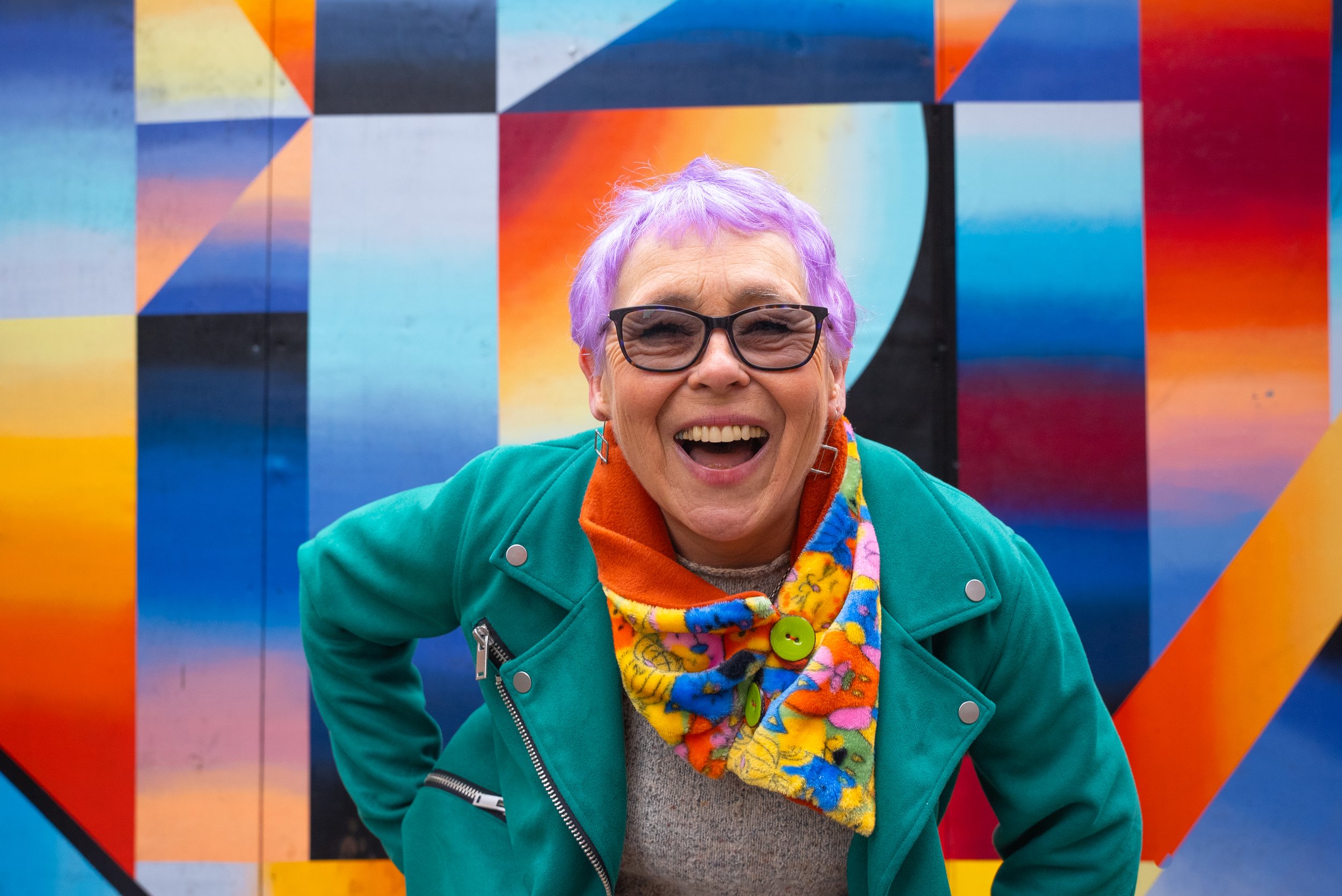Wendy Mitchell - glass half full
I’ve always said that I’m so lucky to be a glass half full person. I always have been a positive person and I’ve also always been highly organised. Both these traits have given me the ability to face dementia head on.
Wendy Mitchell
On the 31st July 2014 I was given the devastating diagnosis of young onset dementia. At the time I was living happily alone in York. I was 58, otherwise healthy and working full time in the NHS at St James Hospital in Leeds.
The year before I was diagnosed I’d had a few minor strokes, so I blamed many of the ‘odd’ incidents I’d had on that. It wasn’t until I did a series of in depth memory tests that dementia was mentioned in passing. But I was only 58 I hadn’t smoked for 30+ years, I didn’t drink and my diet was extremely healthy and I was very fit - running every other day was part of my normal routine. Like so many, at the time, I associated dementia with the elderly. But when I had in depth memory tests redone a year later, they were quite conclusive. The numerous MRI scans had all come back clear, as they often do with many people with young onset dementia. But I then was lucky and had a SPECT scan which clearly identified dementia. I was diagnosed with mixed dementia, vascular dementia and Alzheimer’s, but they’re treating me for Alzheimer’s because I’m tolerating the medication.
I shouldn’t have been shocked as it had been mentioned in passing, so I was half expecting it, but to hear the words spoken and to see it written on the discharge letter still hits hard. In a bizarre way, I was glad to get a diagnosis. It put an end to all the ‘ifs’, ‘buts’ and ‘maybes’ – I could start to formulate a plan for the future. I knew what I was dealing with.
Contrary to the popular belief held by some GP’s, it is important to diagnose dementia early, whether there are services or not, as not diagnosing won’t make the problem magically disappear. It will help highlight the lack of services and where there is a need.
It also enables you to put things in place now while you’re still able and think up strategies, rather than when they will seem unfamiliar. When we’re diagnosed it’s not just us that gets the diagnosis but all our family and friends as well. No one gives you a handbook. You’re left to flounder on your own, often abandoned by services, especially with young onset. I lived alone, I had a mortgage, I worked full time but no one was there to help me or my daughters.
I use to be a very private person but I was so appalled at the lack of awareness and lack of understanding about dementia, both from the public, but more so from professionals, that I now shout from the roof tops at every opportunity simply to get people talking about dementia. Some people remain silent because they’re embarrassed – my response to that is to say that ‘we have a complex brain disease so why on earth should we be embarrassed?’ Others are simply too afraid to speak out, such is the stigma associated with a diagnosis of dementia.
When people hear the word ‘dementia’, they so often think of the end stages. Well it has to have a beginning and a middle, with so much life still to be lived. But this can only be done if those around you don’t give up on you, and if healthcare professionals show you how it’s possible to adapt. I’m lucky; I’m resilient, I don’t give in easily. I see dementia as a bit like a game and I don’t like to lose.
Dementia isn’t age related, neither does dementia discriminate. Age, wealth, education is irrelevant where dementia is concerned. It’s not fussy into whose life it enters. To call something non-discriminatory may sound a compliment but as we all know there’s nothing good about a diagnosis of dementia, or is there?
A diagnosis has opened up many new opportunities for me. They didn’t come by chance though and I’ve had to work hard at banging on doors, opening eyes and helping people realise the talents I still have despite dementia alongside. We all had talents before a diagnosis of dementia, we don’t suddenly lose those talents overnight once diagnosed. We just need help and support of those around us to use those talents in different ways and develop new talents.
Not everyone’s a ‘Wendy’ and sees the positives in such a negative situation. That’s where those reading this can help support those and their family and friends around them who have trouble seeing a life worth living when presented with a diagnosis. As I’m always saying, there’s always a way.
After all I wouldn’t have been able to have written a Sunday Times Best Seller, Somebody I Used to Know, if people hadn’t shown faith in my ability and found a way to help me.
Wendy Mitchell is speaking at this year’s International Masterclass on 14 + 15 May 2019. Find out more, and book your tickets.





